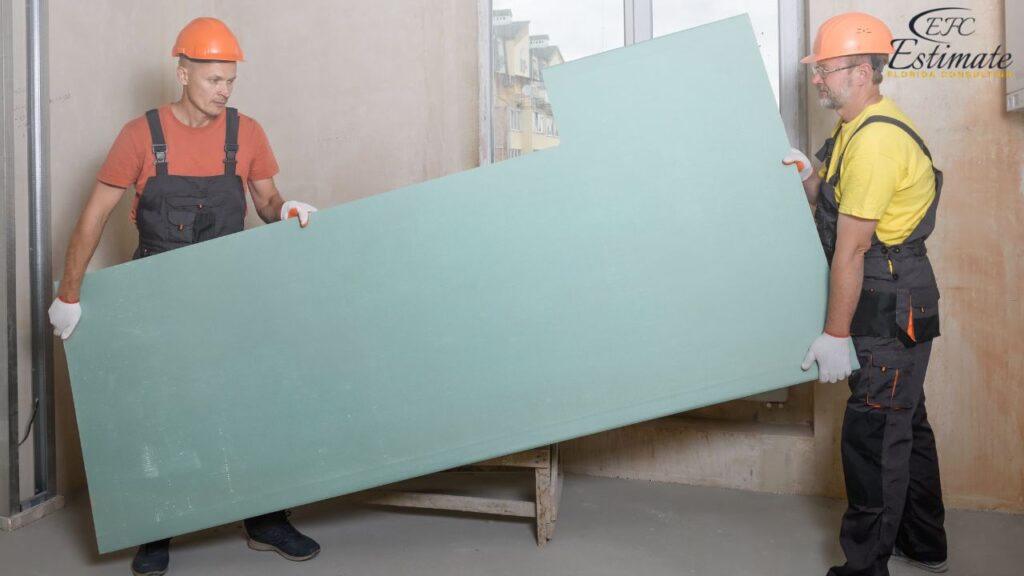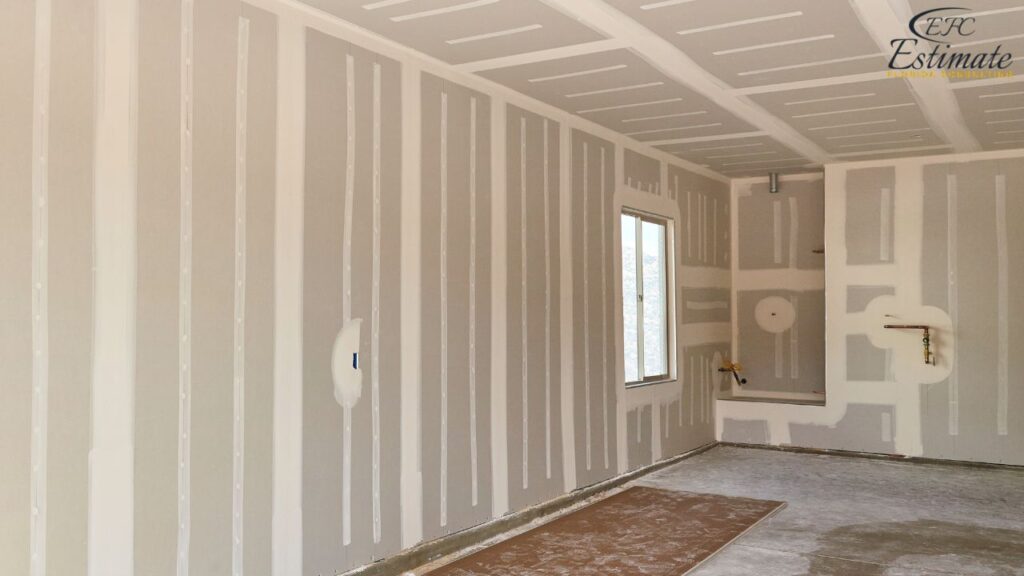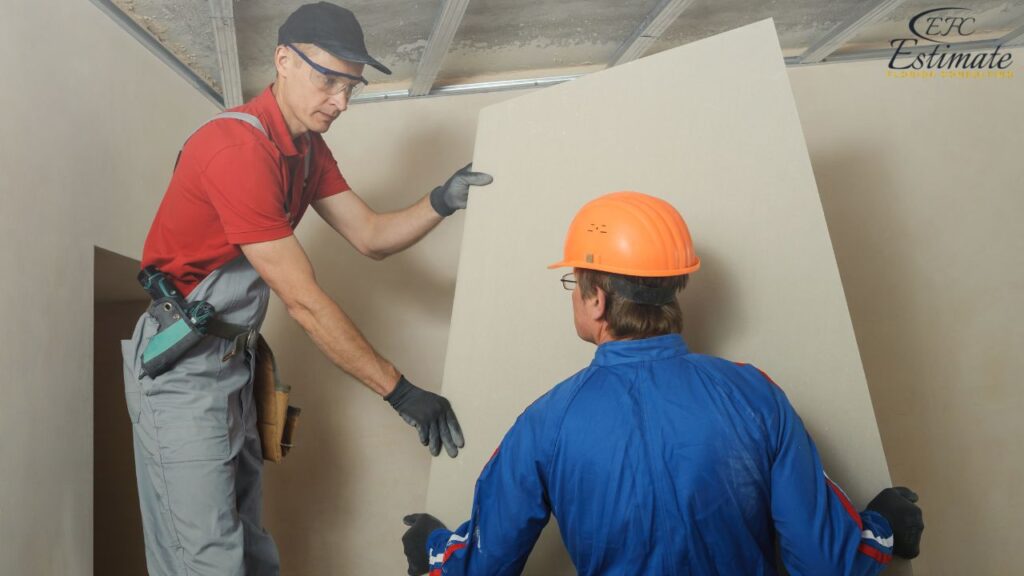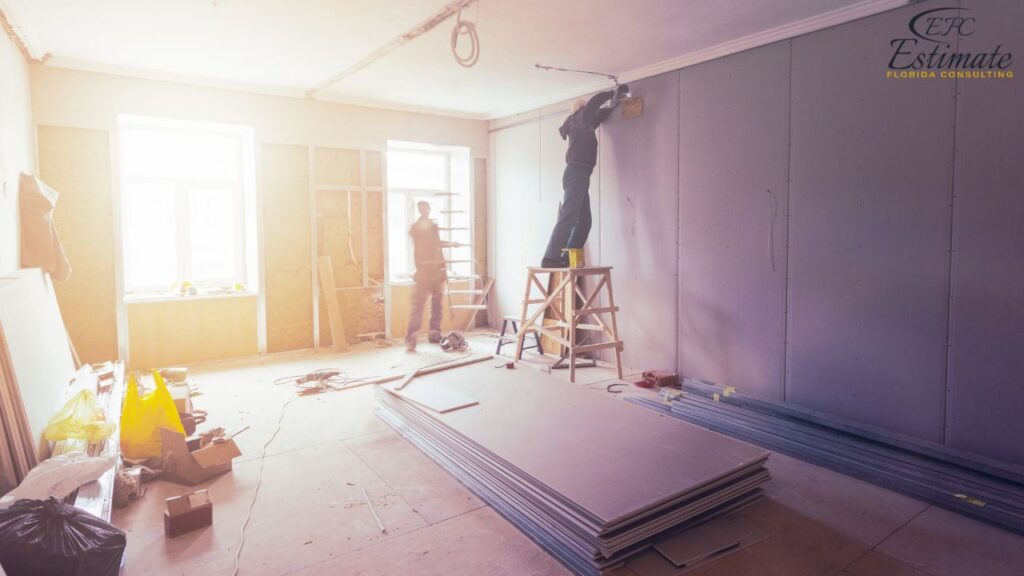Framing and Drywall Cost Estimator
Estimating the cost of framing and drywall is a crucial step in any construction or renovation project. These elements form the backbone of your building’s structure and interior finish, respectively. Accurate cost estimation helps in setting realistic budgets, securing financing, and ensuring the project stays within budget. This guide provides a comprehensive overview of the factors that influence framing and drywall costs and includes a detailed cost estimator to help you plan your project effectively. Understanding these elements allows stakeholders to make informed decisions, avoid unexpected expenses, and ensure the project proceeds smoothly.

Proper planning in framing and drywall installation ensures the structural integrity and aesthetic appeal of your property, contributing to both its functionality and market value.
Factors Influencing Framing and Drywall Costs
Several factors influence the cost of framing and drywall. These include the type of materials used, the size and complexity of the project, labor costs, location, and additional features such as insulation or special finishes. Understanding these factors helps in estimating the total cost accurately and planning the project efficiently. Each factor plays a crucial role in determining the overall budget, and careful consideration of these aspects can lead to more effective resource allocation and project management. By thoroughly analyzing these elements, project managers can anticipate potential challenges and develop strategies to mitigate them, ensuring a smoother construction process and a higher quality final product.
Type of Materials Used
The type of materials used for framing and drywall significantly impacts the overall cost. Different materials offer varying levels of durability, insulation, and aesthetic appeal. Choosing the right material depends on your specific needs and budget. For example, wood framing is common in residential projects due to its versatility and lower cost, while metal framing is preferred for commercial buildings for its strength and fire resistance.
The choice of material significantly impacts framing and drywall costs.
Material Type | Cost per Square Foot | Total Cost (for 1,000 sq ft) |
Wood Framing | $7 – $14 | $7,000 – $14,000 |
Metal Framing | $9.80 – $19.60 | $9,800 – $19,600 |
Drywall | $2.10 – $4.20 | $2,100 – $4,200 |
- Wood Framing: $7 – $14 per square foot. Wood framing is popular for residential construction due to its cost-effectiveness and ease of installation. Wood is a versatile material that can be used in various architectural styles, providing a warm, natural look. However, it may require treatment to resist pests and decay, adding to the maintenance costs.
- Metal Framing: $9.80 – $19.60 per square foot. Metal framing is durable, fire-resistant, and often used in commercial construction. It offers greater stability and is less susceptible to pests and rot compared to wood framing. Although more expensive initially, metal framing can save money over time due to its low maintenance and long lifespan.
- Drywall: $2.10 – $4.20 per square foot. Standard drywall is used for interior walls and ceilings, providing a smooth finish that can be painted or textured. Specialty drywall, such as moisture-resistant or soundproof drywall, can be more expensive but offers additional benefits. The type of drywall chosen can significantly affect the overall cost and functionality of the space.
Size and Complexity of the Project
The size and complexity of the project are crucial factors in determining the overall cost. Larger projects require more materials and labor, and complex designs or structural requirements increase costs due to additional engineering and specialized installation techniques. Complex projects may also require more time for planning and coordination, further adding to the costs.
The size and complexity of the project are critical factors in determining the overall cost.

Project Size | Cost Range |
Small Projects | $9,100 – $18,200 |
Medium Projects | $18,200 – $54,600 |
Large Projects | $54,600 – $109,200+ |
- Small Projects (up to 1,000 sq ft): $9,100 – $18,200. Small projects typically include single rooms or small additions, which are simpler and faster to plan. The reduced complexity of these projects generally means fewer unexpected challenges and a quicker completion time. These projects often involve straightforward framing and drywall installation, making them more predictable in terms of cost.
- Medium Projects (1,000 to 3,000 sq ft): $18,200 – $54,600. Medium-sized projects often involve more complex designs and additional structural requirements, requiring more detailed planning and coordination. These projects might include multi-room renovations or larger residential additions. The increased complexity can introduce challenges such as integrating new structures with existing ones, requiring more expertise and time.
- Large Projects (3,000+ sq ft): $54,600 – $109,200+. Large projects such as entire home builds or large commercial spaces involve significant planning efforts and coordination among multiple stakeholders. These projects often require extensive regulatory approvals, detailed engineering designs, and meticulous project management to ensure successful completion. The scale and complexity of large projects can lead to higher costs due to the need for specialized labor and materials.
Labor Costs
Labor costs vary based on the complexity of the project and the location. Skilled labor is essential for ensuring quality framing and drywall installation, and wages can differ significantly from one region to another. Investing in skilled labor can prevent costly mistakes and rework, ensuring the project is completed to the highest standards.
Labor costs vary based on the complexity of the installation and the location.

Labor Type | Cost per Hour | Total Cost (for 200 hours) |
Unskilled Labor | $35 – $56 | $7,000 – $11,200 |
Skilled Labor | $70 – $105 | $14,000 – $21,000 |
Specialized Labor | $105 – $140 | $21,000 – $28,000 |
Total | $35 – $140 | $42,000 – $60,200 |
- Unskilled Labor: $35 – $56 per hour. Unskilled labor is used for basic tasks such as carrying materials and assisting skilled workers. While these tasks do not require specialized skills, they are essential for supporting the overall installation process. Proper management of unskilled labor can help keep the project on schedule and within budget.
- Skilled Labor: $70 – $105 per hour. Skilled labor is necessary for tasks that require specific expertise, such as framing, drywall installation, and finishing. Skilled workers ensure that the installation is performed correctly, preventing issues such as uneven walls or structural weaknesses. Their expertise can significantly impact the quality and durability of the construction.
- Specialized Labor: $105 – $140 per hour. Specialized labor includes professionals such as carpenters and drywall finishers who have advanced skills in specific areas of the project. These workers are critical for achieving high-quality finishes and ensuring the structural integrity of the framing. Hiring specialized labor can be more expensive but is often necessary for complex or high-stakes projects.
Location
The location of the property affects costs due to variations in labor rates and local regulations. Urban areas typically have higher costs compared to suburban or rural locations. The availability of resources and proximity to suppliers also play a role in determining location-based costs. Understanding the impact of location on costs helps in planning and budgeting more effectively.
- Urban Areas: Higher labor costs and more stringent regulations. Urban construction projects benefit from easy access to amenities and services but come with higher overall expenses. The increased demand for skilled labor and premium materials in urban areas drives up costs. Additionally, urban projects may face more stringent building codes and zoning laws, adding to the complexity and cost.
- Suburban Areas: Moderate costs, balanced access to materials and labor. Suburban areas offer a compromise between cost and convenience, making them a popular choice for many projects. These areas typically have lower regulatory hurdles and labor costs compared to urban centers, making them more cost-effective while still offering good access to suppliers and services.
- Rural Areas: Lower costs, but potentially higher transportation expenses for materials. Rural projects can be more cost-effective, but logistical challenges may increase certain expenses. The distance from suppliers and the availability of skilled labor can affect overall project costs, and rural locations may also face unique environmental challenges that need to be addressed.
Download Template For Framing and Drywall Project Breakdown
- Materials list updated to the zip code
- Fast delivery
- Data base of general contractors and sub-contractors
- Local estimators

Additional Features
Additional features such as insulation, soundproofing, or special finishes can increase the overall cost of framing and drywall. These features add functionality and aesthetic value but require careful planning and budgeting. While additional features can enhance the performance and appearance of the finished project, they can also significantly increase the complexity and cost of the installation.
Additional features can significantly impact the overall cost of framing and drywall.
Feature | Cost per Square Foot | Total Cost (for 1,000 sq ft) |
Insulation | $1.40 – $4.20 | $1,400 – $4,200 |
Soundproofing | $2.80 – $7 | $2,800 – $7,000 |
Special Finishes | $2.10 – $5.60 | $2,100 – $5,600 |
- Insulation: $1.40 – $4.20 per square foot. Insulation improves energy efficiency and comfort by reducing heat transfer between the interior and exterior of the building. Different types of insulation, such as fiberglass, spray foam, or cellulose, offer varying levels of performance and cost. Proper insulation can lead to long-term savings on energy bills and improve the overall comfort of the space.
- Soundproofing: $2.80 – $7 per square foot. Soundproofing materials and techniques reduce noise transmission between rooms, enhancing privacy and comfort. These materials are particularly useful in multi-family housing or commercial buildings where noise control is essential. Investing in soundproofing can improve the quality of life for occupants and increase the value of the property.
- Special Finishes: $2.10 – $5.60 per square foot. Special finishes such as textured walls, custom paint, or decorative moldings enhance the aesthetic appeal of the interior spaces. These finishes can be tailored to match the style and preferences of the property owner, adding unique character to the project. High-quality finishes can also increase the market value of the property and make it more attractive to potential buyers or tenants.
Total Estimated Cost
Summarizing all the costs provides a comprehensive view of the total investment required for framing and drywall installation. This overall estimate allows stakeholders to plan their finances, secure necessary funding, and ensure that the project can proceed without financial interruptions. By understanding the detailed cost breakdown, stakeholders can allocate resources more effectively and make informed decisions to keep the project on track and within budget.

Cost Category | Total Estimated Cost |
Type of Materials | $9,800 – $19,600 |
Size and Complexity | $9,100 – $109,200+ |
Labor Costs | $42,000 – $60,200 |
Additional Features | $1,400 – $7,000+ |
Total | $62,300 – $196,000+ |
Additional Considerations
Environmental Impact
Sustainable practices and eco-friendly materials can reduce the environmental impact of framing and drywall installation. Although these choices may come at a higher initial cost, they offer long-term savings through durability and reduced maintenance. Implementing green building certifications can also increase the property’s value and appeal to environmentally conscious buyers. Choosing materials with low environmental impact, utilizing sustainable practices, and opting for eco-friendly finishes are all ways to enhance the sustainability of the project. This approach not only benefits the environment but also contributes to a healthier living or working environment, providing long-term value to property owners and occupants.
Project Management
Effective project management is essential for controlling costs and ensuring timely completion. This includes detailed planning, regular monitoring, and coordination between different teams. Hiring a competent project manager can save money by avoiding delays, reducing waste, and ensuring that all aspects of the project meet the required standards. A project manager also ensures that communication among all stakeholders is clear and efficient, helping to resolve issues quickly and maintain project momentum. Proper project management can prevent costly mistakes and rework, ensuring that the project is completed within budget and on schedule, leading to higher satisfaction for all parties involved.
Get 5 New Leads Next 7Days With Our System
- Multi-Family Building
- Hotel Building
- Hospital Building
- Warehouse Building
- High-Rise Building
- Shopping Complex
Contingency Planning
Unexpected issues can arise during framing and drywall installation, making it essential to include a contingency fund in the budget. This fund covers unforeseen expenses such as delays, design changes, or additional materials. Allocating around 10-15% of the total budget for contingencies can help manage these surprises and keep the project on track. Proper contingency planning ensures that the project can continue smoothly even when unexpected challenges arise, minimizing delays and additional costs. This proactive approach to risk management can save significant time and money in the long run, ensuring a successful project outcome and reducing stress for stakeholders.
Conclusion
Estimating framing and drywall costs accurately is vital for the success of any construction or renovation project. By understanding the various factors that influence costs and using a detailed cost estimator, you can plan your project effectively and ensure it stays within budget. Whether you are undertaking a residential, commercial, or industrial project, careful planning and budgeting are key to achieving high-quality, timely, and cost-effective results. Investing in skilled professionals, quality materials, and effective project management will help you achieve a successful and sustainable framing and drywall installation. The effort put into pre-construction planning lays a strong foundation for the entire project, leading to better outcomes and greater satisfaction for all stakeholders.
FAQs
Framing and drywall cost estimation involves calculating the costs associated with constructing the structural framework (framing) and finishing the interior walls and ceilings (drywall) of a building. This includes costs for materials, labor, permits, and additional features such as insulation or special finishes.
Accurate cost estimation helps set realistic budgets, secure financing, and ensure the project stays within budget. It prevents unexpected expenses and ensures the project proceeds smoothly, maintaining structural integrity and aesthetic appeal.
Several factors influence the cost, including:
- Type of materials used
- Size and complexity of the project
- Labor costs
- Location of the project
- Additional features such as insulation or special finishes
Different materials offer varying levels of durability, insulation, and aesthetic appeal. Choosing the right material depends on your specific needs and budget.
- Wood Framing: $7 – $14 per square foot
- Metal Framing: $9.80 – $19.60 per square foot
- Drywall: $2.10 – $4.20 per square foot
Larger and more complex projects require more materials and labor, increasing the total expense. Accurate measurements and planning are essential to ensure you purchase the right amount of materials and avoid wastage.
- Small Projects (up to 1,000 sq ft): $9,100 – $18,200
- Medium Projects (1,000 to 3,000 sq ft): $18,200 – $54,600
- Large Projects (3,000+ sq ft): $54,600 – $109,200+
Labor costs vary based on the complexity of the installation and location. Skilled labor ensures quality installation and can prevent costly mistakes and rework.
- Unskilled Labor: $35 – $56 per hour; $7,000 – $11,200 for 200 hours
- Skilled Labor: $70 – $105 per hour; $14,000 – $21,000 for 200 hours
- Specialized Labor: $105 – $140 per hour; $21,000 – $28,000 for 200 hours
Urban areas typically have higher costs due to higher labor rates and stricter regulations. Suburban and rural areas may have lower costs but could face logistical challenges.
Google Reviews



Process To Get Framing and Drywall Estimate Report
Here I am going to share some steps to get framing and drywall estimate report.
-
You need to send your plan to us.
You can send us your plan on info@estimatorflorida.com
-
You receive a quote for your project.
Before starting your project, we send you a quote for your service. That quote will have detailed information about your project. Here you will get information about the size, difficulty, complexity and bid date when determining pricing.
-
Get Estimate Report
Our team will takeoff and estimate your project. When we deliver you’ll receive a PDF and an Excel file of your estimate. We can also offer construction lead generation services for the jobs you’d like to pursue further.

